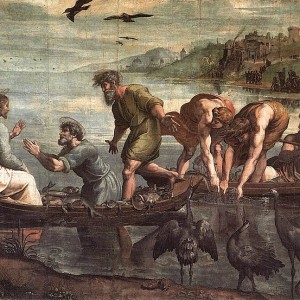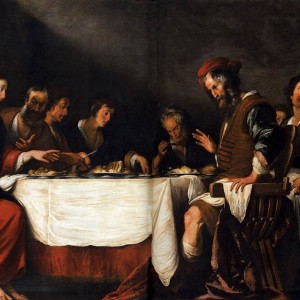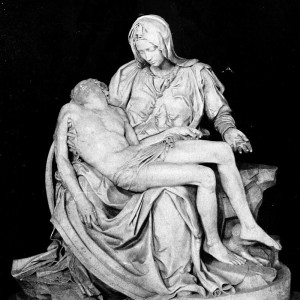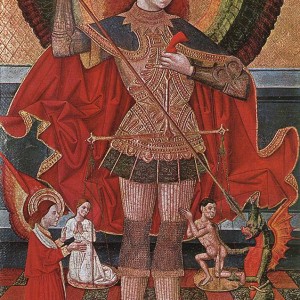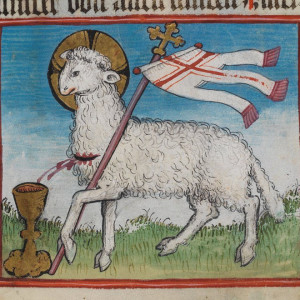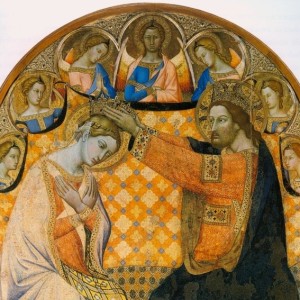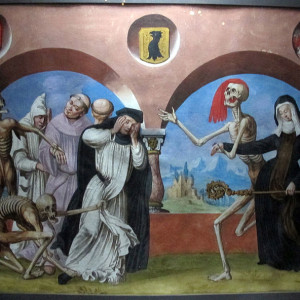When Richard Dawkins and American Atheists write off the Bible as a “Bronze aged book,” they’re only demonstrating their historical ignorance and the strength of the case for Biblical inspiration. If the human authors of Scripture were primitive ignoramuses, how do we account for the credibility of the Apostles’ testimony?
Tag: apologetics
The First Step in Learning to Forgive
Every day, when we pray the Our Father, we ask God to “forgive us our trespasses as we forgive those who trespass against us.” If we refuse to forgive others, we’re asking God to hold us to our own unforgiving standard. This is a hard message, because it’s hard to forgive others when we’ve been hurt. Jesus recognizes it. When He introduces the Our Father, this is the only one part He feels the need to explain. But He doesn’t say “forgive, unless it’s hard.” He says, “if you forgive men their trespasses, your heavenly Father also will forgive you; but if you do not forgive men their trespasses, neither will your Father forgive your trespasses” (Matthew 6:14-15).
The Virgin Mary, Suffering, and the School of the Cross
We, the Church, we are the Body of Christ. We say that all the time, but do we really believe that? If we do, then we need to know two things: (1) that Mary is our Mother, and (2) that our sorrows have meaning, they have a purpose.
Jesus didn’t say, “take up your Cross and throw it away,” but “take up your cross and follow me.” He doesn’t suffer and die so that we don’t have to suffer. He suffered and died so our sufferings have meaning.
Will “Basically Good People” Be Saved?
“Are you going to Heaven?” “I think so. After all, I’m basically a good person.” Like me, you’ve probably heard versions of this conversation countless times. It relies on a simple but attractive theological premise: since you’re basically a good person, it would be unjust to send you to Hell; therefore, you’ll be in Heaven… Continue reading Will “Basically Good People” Be Saved?
Did Calvin Deny Christ’s Sinlessness?
John Calvin taught that concupiscence, our post-Fall inclination towards sin, was itself sinful. He went so far as to say that man was only concupiscence. These views don’t square well with the Incarnation, the idea that Jesus Christ became fully man, but without sinning. Perhaps it is unsurprising, then, that Calvin’s views led him to functionally deny Christ’s sinlessness, particularly at the moment when He was at prayer in the Garden. The broader question: was Calvin’s heresy in spite of his Reformed theology, or because of it?
7 Mysteries of the Faith Unlocked by the Eucharist
The scroll and seven seals of the Book of Revelation couldn’t be opened without the Lamb standing as though slain, the Eucharistic Christ. Here are seven other mysteries of the faith that we need the Eucharist to unlock: (1) the New Covenant; (2) the Old Covenant; (3) the Mass; (4) Early Christianity; (5) the Church; (6) the lives of the Saints; and (7) your own spiritual life.
Humbled by Greatness: the Soul of Creatureliness
“This entire dynamic of goodness, approval, and reception of praise lies at the heart of our relationship with God. For in heaven, […] God showers us with praise. “Well done, my good and faithful servants” (Mt 25:23). “Come, O blessed of my Father” (Mt 25:34). In this heavenly experience, the blessed responds with gratitude. The saved creature graciously receives the divine accolade, expressing thanks. The humility of creature permits thanksgiving, and in giving thanks the creature reaffirms its humility. ” – Guest post by Matthew Rensch.
Why “The Lord will Fight for You, You Have Only to be Still” is Bad Advice
In Exodus 14:13-14, Moses says to the Israelites, “Fear not, stand firm, and see the salvation of the Lord, which he will work for you today; for the Egyptians whom you see today, you shall never see again. The Lord will fight for you, and you have only to be still.”
It’s a famous rallying cry, popularized on everything from t-shirts to non-denominational blogs as a way of living out “faith alone.” But there’s a problem: Moses’ plan is a bad plan, and God corrects him for it.
Before You Condemn the Wandering Jews…
This Sunday, you’ll hear the wander Jews in the desert announce their preference for the security of slavery in Egypt over the uncertainty of following Moses (and God) in the Exodus, and you’ll hear the followers of Jesus in John 6 prefer free bread over saving truths. It’s easy to condemn these people, but are we really so different?
Can Non-Christians Be Saved?
Four questions routinely arise about the Church’s view of the possibility of salvation for those outside of Her ranks:
1. Is Baptism necessary for salvation?
2. Are all of the non-baptized damned?
3. If the non-baptized can be saved, why share the Gospel?
4. Has the Catholic Church changed her answer to these prior three questions?
To understand how the Church can simultaneously hold that Baptism is necessary for salvation and that those can be saved who have never been Baptized, we’ve got to consider two things: how to get to Heaven, and how to get to Hell.
